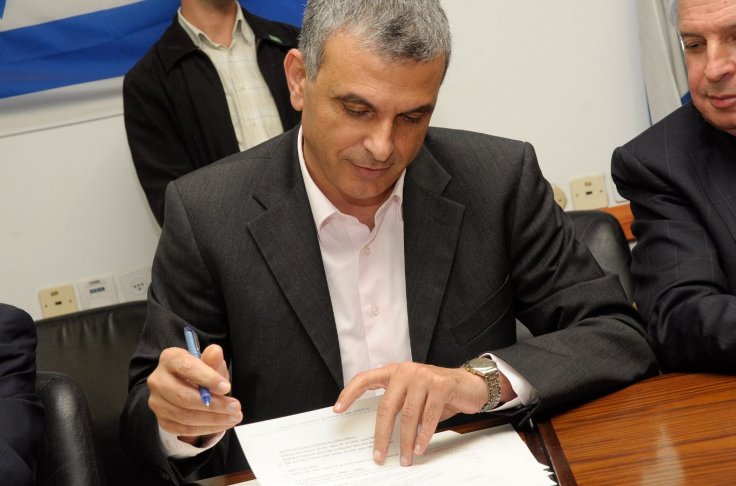Israeli Finance Minister Moshe Kahlon will not run in a March parliamentary election but will keep his post until a successor is chosen, his spokesman said on Monday.
"He is not going to be a member of Knesset (parliament) ... or hold any political office. He wants to be with his family and grandchildren," the spokesman said. Kahlon, 59, will remain as minister until a new government is formed, which is not expected to happen before April.
Israel will hold its third election in less than a year on March 2 and it typically takes up to six weeks to form a ruling coalition. Prime Minister Benjamin Netanyahu and his main challenger, Benny Gantz, failed to form governments after elections last April and September.
As a result of the stalemate for the past year, Israel has been run by caretaker governments with limited power. In the absence of a 2020 budget, Israel is operating on a prorated 2019 base budget. Israeli markets were barely changed with the shekel and Tel Aviv shares flat.

Kahlon began his national political career in 2003 as a member of Netanyahu's Likud party but his biggest claim to fame came in 2012 as Communications Minister when he led a reform that opened the mobile phone market to competition, leading to a steep drop in costs for consumers as well as a plunge in profits for operators.
In the run-up to the 2015 election, Kahlon broke from Likud to form his own Kulanu party, which won 10 seats to capitalize on promises to reduce housing and other living costs. Housing prices rose 15% in the last five years, although the rate of growth has slowed amid a number of steps he initiated.
Kulanu fell to four seats after last April's election and merged with Likud ahead of the September vote. During Kahlon's term, fiscal policy remained mostly stable and led to sovereign credit rating increases, although the budget deficit reached 3.7% of gross domestic product in 2019, well above a 2.9% target.
Kahlon came under fire from economists who say that he and Netanyahu increased spending on state subsidies for day care and other services, and gave pay rises to police and other public servants, while cutting taxes. Israeli media said Kahlon was retiring because of exhaustion.









